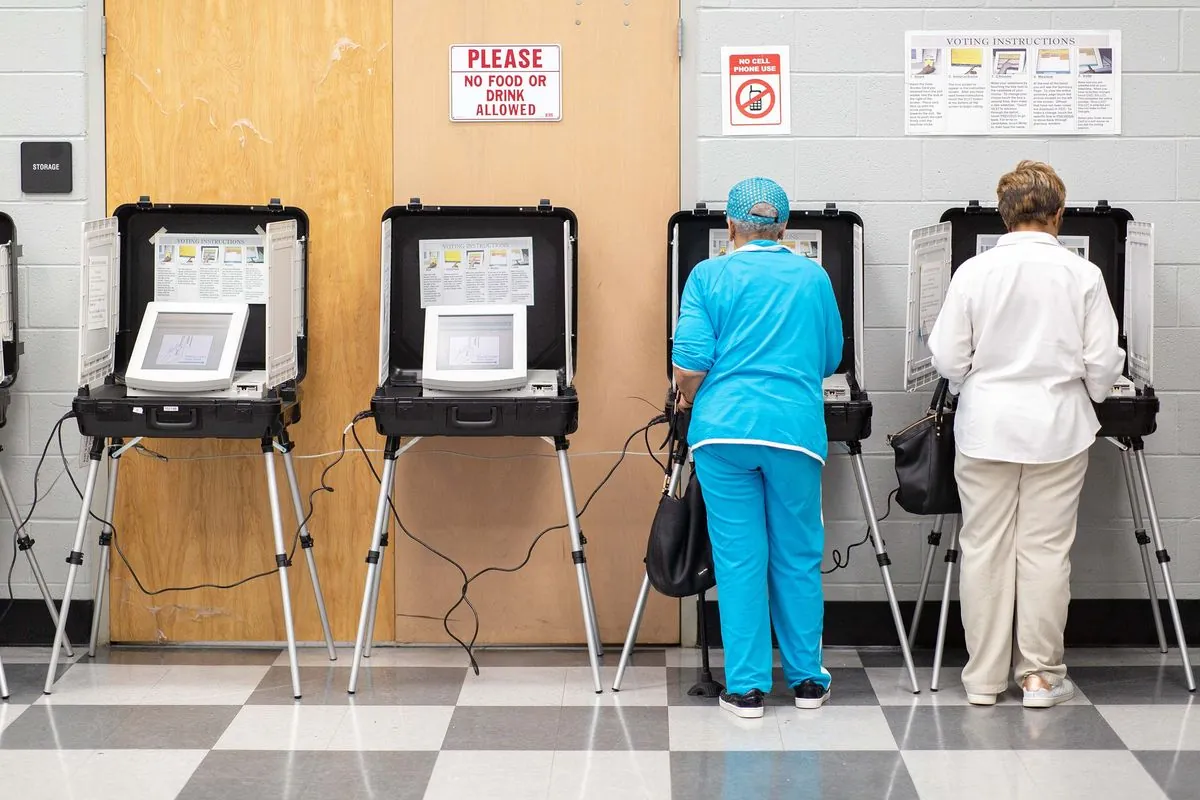Democrats Eye Sweeping Voting Rights Reforms if Victorious in 2024
Democratic leaders prioritize voting rights legislation, aiming to expand access and curb gerrymandering if they win the presidency and Congress in 2024. Republicans oppose, calling it a federal overreach.

Democratic leaders are positioning voting rights legislation as a top priority should they secure control of the presidency and Congress in the upcoming 2024 election. The party is focusing on two key bills: the Freedom to Vote Act and the John Lewis Act, which aim to expand voting access and address issues like gerrymandering.
Charles E. Schumer, Senate Majority Leader, emphasized the critical nature of these reforms, stating, > "This is vital to democracy. This is not just another extraneous issue. This is the wellspring of it all."
The proposed legislation would introduce significant changes to the electoral system, including:
- Guaranteeing early voting periods
- Simplifying voter registration processes
- Prohibiting partisan gerrymandering
- Enhancing political donor disclosure requirements
- Providing additional public funding for campaigns
- Strengthening the Voting Rights Act
To enact these measures, Democrats are considering bypassing the filibuster, a long-standing Senate procedure that has been part of the rules since the 19th century. This willingness to alter Senate norms underscores the party's determination to push through their agenda.

The push for voting rights reform comes in response to recent actions by Republican-led states to limit mail voting and Supreme Court decisions that have reduced the scope of the Voting Rights Act. The Voting Rights Act, originally passed in 1965 during the Civil Rights Movement, has been a cornerstone of electoral equality in the United States.
Republicans, including Ohio Secretary of State Frank LaRose, strongly oppose the proposed legislation, viewing it as a federal overreach that infringes on states' authority to manage elections. LaRose stated, > "I would be first in line to file litigation on this."
Supporters of the bills argue that they would benefit democracy and enjoy broad public support, despite polarization in Congress. Michael Waldman, president of the Brennan Center for Justice, noted, > "This bill is good for democracy, and it is also extraordinarily popular."
The proposed reforms face potential challenges, including skepticism from the conservative-majority Supreme Court and logistical hurdles in implementing new voting systems. The U.S. currently has one of the lowest voter turnout rates among developed countries, a fact that proponents of reform often cite.
As the 2024 election approaches, the debate over voting rights and electoral reform is likely to intensify, with both parties staking out clear positions on this crucial aspect of American democracy.


































